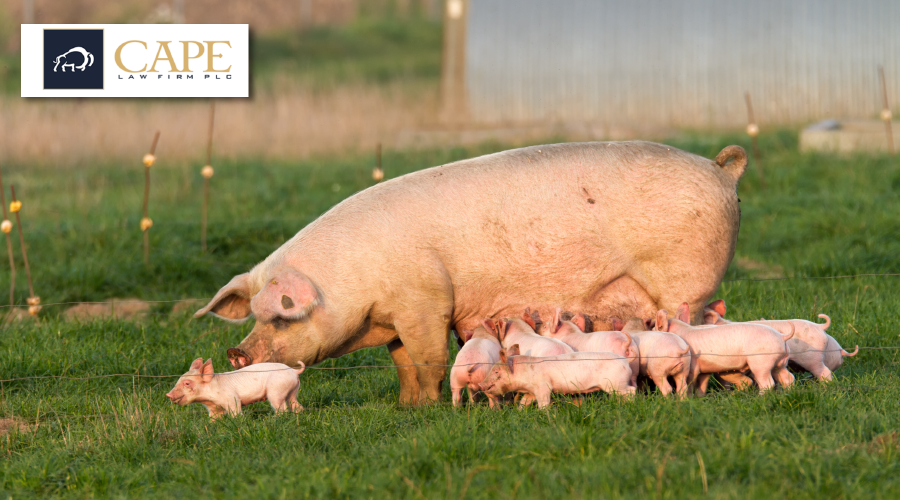Premium Pork Producers Promote Prop 12
Not every grower of swine felt that the sky was falling when the U.S. Supreme Court recently upheld California’s animal welfare law, known as Proposition 12. As reported in a recent article in Farm Progress, some pork producers and processors have been ahead of the curve and began the transition to larger living spaces for pigs and away from confinement facilities years ago. These producers welcome the ruling and view it as a market opportunity to earn a premium. Brad Clemens, president of Clemens Food Group, indicated that his company gave their producers a choice to convert from non-confinement facilities or keep the status quo: “This is their choice to be able to make this conversion, and a lot of them have.” “It is a win-win situation for us and producers.”
Thus, these producers are concerned that proposed federal legislation, the Ending Agricultural Trade Suppression (EATS) Act, will undo all of their work and investment in non-confinement production facilities. According to the National Pork Producers Council, the EATS Act is “a legislative solution to Proposition 12 to prevent state and local governments from interfering with the production of agricultural products in other states and preserving consumer choice.” However, some believe that consumers have already made their choice known – Prop 12 was a ballot initiative that passed with nearly 63% of the vote.
In a world of homogeneous agricultural commodities, market differentiation is one of the few remaining methods that producers can use to grow revenues and profitability. Thus, at least for some producers, Prop 12 is a good thing.
Bad Science
Simply claiming that something is “science-based” doesn’t mean that it truly is. Indeed, some so-called science is just old-fashioned fraud, and the problem seems to be growing according to a recent Wall Street Journal article highlighting the efforts of a group of volunteer scientists to uncover flawed and falsified scientific papers. According to Retraction Watch, nearly 5,000 scientific papers were retracted in 2022, versus only 119 in 2002.
The growth of “bad science” in recent years suggests that science is becoming increasingly politicized to drive policy and government regulation. Thus, it pays to be skeptical when special interest groups (including agricultural groups) claim to have science on their side.
AI Drones Poised to Revolutionize Crop Pesticide Application
Canadian start-up Precision AI has been developing artificial intelligence drone technology over the last 5 years enabling drones to identify and spot spray weeds in crop fields. What makes this technology different than previous efforts to use drones in crop production is its potential to be deployed on a significantly broader scale, i.e., large acreages. The company is using fixed-wing drones with extended flight times which can cover about 80 acres an hour. According to Precision AI’s founder, the cameras on their drones are capable of “seeing” anything bigger than half a sesame seed and their AI algorithms identify weeds with 96% accuracy. The drones can be deployed in swarms and mobile charging stations that will enable coverage of really large farms. The company also claims that its application technology is drift-free.
Precision AI’s drone technology could reduce pesticide application quantities by up to 90%, representing huge cost savings to growers. Even if chemical use was cut by 50%, the annual savings to a farmer would be a big boost to the bottom line. Additional benefits include reducing labor requirements and eliminating soil compaction from using large broadcast spray rigs. The technology could also potentially solve some of the most persistent and difficult application challenges, such as following buffer zones and enabling compliance with the EPA’s new Endangered Species Act restrictions.
The fact that John Deere has become one of Precision AI’s collaborators is an important vote of confidence in the validity of Precision AI’s technology.





